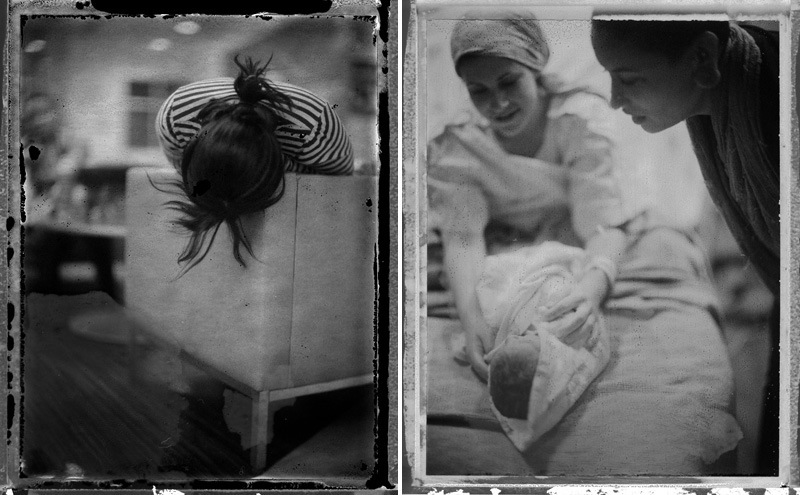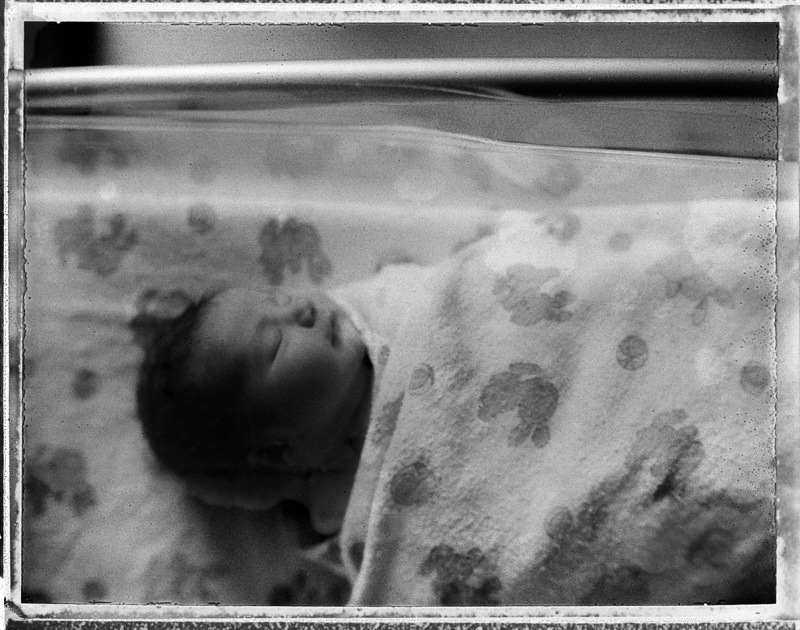

Nine days ago, after delaying as much as possible, whipping together some mayonnaise (aioli if you want to sound fancy), setting the sourdough for pancakes the next day, taking a walk around the block, and other such activities, we finally jumped (I jumped, Estee rolled) into our silver Honda Odyssey, moseyed onto the 710, merged onto the 105 (which, in some ridiculous abuse of power, changes from 6 lanes to 3 in less than 300 feet), exited at Bellflower, made a left on Imperial Highway, turned right on the imaginatively named "Care Way", found some parking, and checked into the triage wing of Kaiser Permanente Hospital.
That was around 10:00 PM. Fifty five minutes later Estee gave birth to a little 8lb. 2 oz. ball of deliciousness. I tried to remember how long he was, but it never works (dudes like me just don't seem to care about these details).
Guys like being in charge of situations; to help, give a hand, doing something. I doubt there are many times where a husband feels as utterly useless as when his wife is in labor. You know she's in pain, you hear the screams, clutch your imaginary womb in empathy. And there is nothing you can do. Nothing.
Now came the planning of the Shalom Zachar and the Bris. The Shalom Zachar is a little shindig you make the Friday night after the baby is born. Beer and chickpeas are customary, along with the normal spread of cookies, chips, etc. The community here in Long Beach (and our family) was amazing in sending over food, drinks, paperware, etc. All I had to buy was beer. Which I gladly overdid :). I also had to finish all the opened beers after everyone left. You know, waste not, want not.
Next came the bris (circumcision). Last time I posted about a bris on facebook I got attacked by the anti-bris brigade. Quite an interesting bunch of people. Anyways, the bris is when you actually name the baby. Naming is challenging. Chassidus explains that the Hebrew name by which someone is called reflects his inner soul; his character traits, emotional tendencies, intellectual capabilities, and spiritual acuity. So you want to name him with a special name, either after a special person, or a name which means something special. There is also the custom to name after a deceased relative. And we have a lot of those. In fact the large majority of our relatives over the past 5773 years are deceased (and most have eaten bread... do you see the correlation?).
In my family I have many illustrious, holy and smart relatives. Relatives who gave their entire lives to teaching and spreading the wellsprings of Torah.
Relatives who sacrificed their lives for the sanctification of G-d's name.
After much deliberation, a little consternation, (and after almost going with the name “Batman Berkowitz”) we decided on the name “Shlomo” (Solomon).
Shlomo was my mother’s father’s twin brother’s name. Shlomo Carlebach was a Jew who lived and breathed Ahavas Yisroel, love of his fellow Jews. And not in a “I’m a hippy and I love everyone so much” type of way, but in a deep and personal way. He went to places where Judaism was almost non-existent, to people who yearned for truth, but had no idea what it was, and he taught, and sang, and loved so much, that the truth just shone forth. He didn’t argue theology, or bring in modern scientific theories to prove anything. He spoke to souls. He would walk by a poor stranger and just give him everything in his wallet. Everything.
He was an amazing Torah scholar as well as a gifted composer and singer. There is much to be said about him and his life, but I’ll leave that to the history books and wikipedia. Okay, maybe not wikipedia.
Shlomo was the name of the third king of Israel. It was he who built the first Beis Hamikdash (Holy Temple) in Jerusalem. He is known as the wisest man who ever lived, who knew the languages of the trees, the birds, and all the mystical creatures. Under his rule the Jews knew a peace and serenity that has been unparalleled before and after, and when we speak about the coming of Moshiach (messiah), we compare it to the times of King Shlomo.
The name comes from the word Sholom which means peace, and Shalem which means complete, for it is only when there is true peace, between the spiritual and physical, between the holy and mundane, between the body and soul, that the purpose of creation is complete.
And while his father, David, is the more famous poet, King Shlomo penned (quilled?) some of the most passionate love songs to Hashem. The Shir HaShirim (Song of Songs) and Eishet Chayil (Woman of Valor), along with the deeply powerful Mishlei (Proverbs), and Koheles (Ecclesiastes).
This past Tuesday was the Fast of Tisha B’av (9th of the Jewish month of Av), when we mourn the destruction of the Beis Hamikdash, and the subsequent exiles. The reason that is given for the destruction and exile is Sinat Chinam, baseless hatred. For Jews not getting along, fighting, arguing, living their own lives for themselves. What the world needs is peace, not just in the world sense, but in the more intimate sense, in being real with your spirituality, having real emotions towards G-d, and living a purposeful life; true love (not in the first-kiss-disney-sense), really and truly loving your fellow, being empathetic, giving; and the building of the third and final Beis Hamikdash with Moshiach.
I feel the world needs another Shlomo.